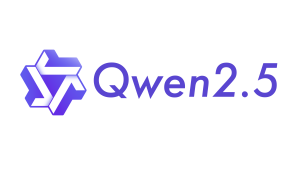Digital platforms that facilitate online transactions between buyers and sellers play a key role in the strong growth of online trade. Two-thirds of all cross-border e-commerce sales of goods are made through online marketplaces. Digital platforms also facilitate transactions between users in the sharing and gig economies. These economies are growing rapidly.
In 2019, the OECD published the report on the Role of Digital Platforms in the Collection of VAT/GST on online sales, which addressed the challenges of collecting the VAT on digital transactions. This year, OECD has published Model Rules for Reporting Platform Operators with respect to Sellers in the sharing and gig economy to collect information on transactions and income realised by platform sellers. Digital platforms become involved in both the collection of VAT on those sales and the exchange of information on such sales with tax authorities.
Last September, the European Commission published Explanatory Notes on the new VAT e-commerce rules. These Explanatory Notes will be soon translated to Chinese and Japanese.
From 1 July 2021, a number of amendments to the EC VAT Directive will start to apply that will affect the VAT rules applicable to cross-border business-to-consumer (B2C) e-commerce activities. What is the background and what is the role of digital platforms, now?
The amendments shall address distance sales of goods and importation of low-value goods: (i) EU businesses selling goods online to consumers located in other Member States need to register for VAT in the Member State of the consumer when their sales exceed the distance sales threshold of EUR 35,000/100,000; (ii) The VAT exemption for the import of low-value goods up to EUR 22 leads to abusive practices; (iii) Non-EU businesses selling goods from 3rd states to consumers in the EU can make VAT-free supplies into the EU and are not required to register for VAT.
The amendments shall simplify VAT obligations for businesses engaged in cross-border e-commerce and place non-EU businesses on equal footing with EU businesses: (i) The threshold EUR 35,000/100,000 for intra-Community distance sales of goods will be replaced by a new EU-wide threshold of EUR 10,000. Below this threshold, the supplies may remain subject to VAT in the Member State where those goods are located; (ii) The Mini One Stop Shop (MOSS) allowing suppliers to register for VAT in one Member State will be extended to intra-Community distance sales of goods; (iii) A deemed supplier provision will be introduced. A business is a deemed supplier if it facilitates supplies through the use of an online electronic interface; (iv) The VAT exemption at the importation of small consignments up to EUR 22 will be removed. An Import One Stop Shop (IOSS) will be introduced for distance sales of goods imported from third states of an intrinsic value not exceeding EUR 150.
The deemed supplier provision provides that a business that facilitates the supply via an electronic interface shall be deemed to have received and supplied the goods itself.
Which supplies of goods are covered by the deemed supplier provision?
The deemed supplier provision covers two transactions: (i) distance sales of goods imported from third states in consignments of an intrinsic value not exceeding EUR 150 (so-called frequently referred to as low-value goods; and (ii) supplies of goods within the Community by a taxable person not established there to a non-taxable person. As a consequence, the deemed supplier provision covers goods in consignments of an intrinsic value not exceeding EUR 150 supplied to a customer in the EU and imported in the EU, irrespective of whether the underlying seller is established in the EU or outside the EU; and (ii) goods which were already released into free circulation in the EU and goods which are located in the EU, which are supplied to customers in the EU, irrespective of their value, when the underlying seller is not established in the EU.
When does a digital platform facilitate the supply?
The term “facilitates” means the use of an electronic interface to allow a customer and a supplier, offering goods for sale through the electronic interface, to enter into contact, which results in a supply of goods being made through that electronic interface to that customer. The transaction is concluded with the help of a business operating the electronic interface.
What are the consequences of the deemed supplier provision?
The deemed supplier provision provides that a business that facilitates the supply via an electronic interface shall be deemed to have received and supplied the goods itself. This means that the underlying supply from the seller is split into two supplies: (i) a supply from the underlying supplier to the electronic interface (deemed B2B supply), which is treated as a supply without transport; and (ii) a supply from the electronic interface to the customer (deemed B2C supply), which is treated as supply with transport. As a consequence, the electronic interface is treated to have purchased the goods from the underlying supplier and sold them to the customer.
When will the amendments to the EC VAT Directive become applicable?
The amendments applicable to cross-border business-to-consumer (B2C) e-commerce activities will become applicable from 1 July 2021.
An increasing number of taxpayers are earning taxable income through electronic platforms.
What is the current development in Switzerland?
On 19 June 2020, the Swiss Ministry of Finance published a draft that shall introduce a deemed supplier provision flowing the OECD standards and the EC VAT e-commerce Directives. The deemed supplier provision shall attribute supplies by sellers carried out through the electronic platform to the electronic platform. This attribution shall be applicable if an electronic platform brings together buyers and sellers to conclude a contractual agreement for the delivery of goods. If the place of supply is in Switzerland, the underlying supply by the foreign or domestic supplier will be exempted from VAT if the electronic platform is entered in the Register of VATaxable Persons.
According to the general rules, the electronic platform will become a VATpayer if it makes supplies in Switzerland and generates in Switzerland and abroad a turnover from supplies of at least 100,000 Swiss francs within one year. In particular, the foreign or domestic platform will become a VATpayer in cases of distance sales of goods imported from third states that are exempt from import VAT because of low-value goods, but the platform makes a minimum turnover of 100,000 Swiss francs per year therefrom (so-called distance sales rules). In such a case, the deemed place of supply of the low-value goods is in Switzerland. The threshold for low-value goods is 65 and 200 Swiss francs respectively.
Which supplies of goods are covered by the deemed supplier provision?
The draft follows the deemed supplier rules of the EC VAT e-commerce Directives. However, a major difference is the wider scope of application. The Swiss deemed supplier provision shall cover both foreign and domestic businesses and all cross-border and domestic supplies of goods carried out through the electronic platform. The EC deemed supplier rules are limited to distance sales of low-value goods imported from third states, and supplies of goods within the Community by a taxable person not established there to a non-taxable person.
The Swiss draft does not include yet reporting obligations for electronic platforms with respect to Sellers in the sharing and gig economies.
The Swiss deemed supplier rules are mainly directed to foreign distance sale suppliers who do not fulfil their Swiss VAT obligations. The distance sales rules have, however, not achieved a level playing field and fair and equal conditions for competition between foreign and domestic suppliers. As of April 2020, only 213 foreign suppliers of distance sales were entered in the Register of VATaxable Persons. Further, a number of foreign suppliers may not achieve the threshold of 100,000 Swiss francs from the supply of low-value goods and, thus do not become Swiss VATtaxpayers in Switzerland. Contrary to the EC VAT e-commerce Directives, the Swiss draft does not remove the VAT exemption at the importation of low-value goods.
Does the Swiss draft propose reporting obligations for electronic platforms with respect to Sellers in the sharing and gig economies?
An increasing number of taxpayers are earning taxable income through electronic platforms. Independent service providers make use of electronic platforms. The transactions and payments are recorded in electronic form. Independent services may include a wide scope of services, such as transportation and delivery services, manual labour, tutoring, copywriting, data manipulation as well as clerical, legal or accounting tasks.
The Swiss draft does not include yet reporting obligations for electronic platforms with respect to Sellers in the sharing and gig economies. However, one may expect that new rules will be proposed in the near future to collect information on transactions and income realised by service providers that make use of electronic platforms.
Dr. Marcel R. Jung, LL.M.
Attorney at Law, Certified Tax Expert
Partner
FRORIEP Legal AG | Bellerivestrasse 201 | P.O. Box | 8034 Zurich | T +41 44 386 60 00 | F +41 44 383 60 50 | froriep.com | blog.froriep.com
Marcel R. Jung is considered as a leading lawyer in tax and private client matters in Switzerland. He is also a highly experienced tax litigator in both Swiss and international tax cases in the Swiss courts up to the Supreme Court.
His professional interest focuses on the tax challenges of the digital economy, global tax transparency and cross-border exchange of information, BEPS Action Plan of the OECD and its impact on business and group taxation and private investment structures, multilateral agreements in tax matters, tax arbitration and protection of taxpayers’ rights.





















